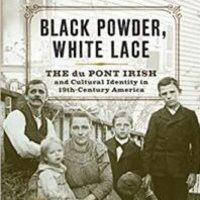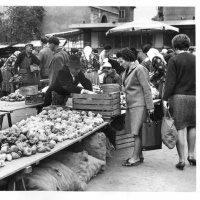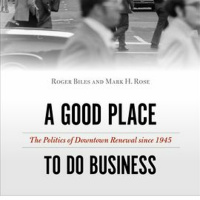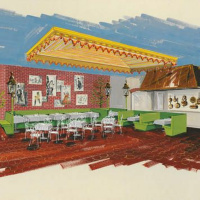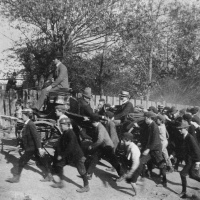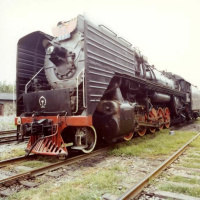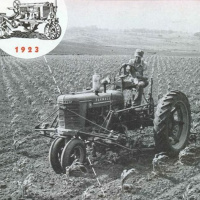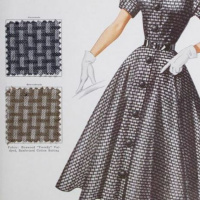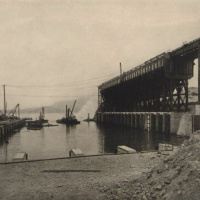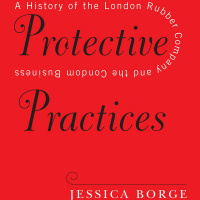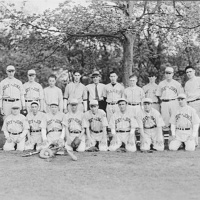Sinopsis
Podcast by Hagley Museum and Library
Episodios
-
Survival is Improvisational: Casual Labor in Postwar America with Maia Silber
15/05/2023 Duración: 28minEven the most favored workers of the New Deal order, white male heads of households with unionized industrial jobs, faced economic uncertainty in the form of irregularity of work and earnings. These workers and their families made ends meet with a variety of “casual” work arrangements; seasonal labor, barter, family interdependence, etc. Much of the rest of the American labor force in the post-World War Two period was entirely dependent upon the casual labor sector for their livelihoods. In her dissertation project, Maia Silber, PhD candidate in history at Princeton University, uncovers the experience of causal workers and their families in the 1940s and ‘50s United States. Drawing upon the varied archives of social workers, industrial firms, business organizations, and the labor-related institutions that emerged from the New Deal, Silber uncovers a social history of causal labor during the height of postwar American prosperity, when even relatively privileged workers had to improvise in order to survive.
-
Underwriters of the United States: How Insurance Shaped the American Founding with Hannah Farber
01/05/2023 Duración: 55minIn this edition of Hagley History Hangout, Hannah Farber discusses her new prize-winning book, Underwriters of the United States, with Roger Horowitz. Her book traces how American maritime insurers used their position at the pinnacle of global trade to shape the formation of the United States. During American Revolution, they helped the U.S. negotiate foreign loans, sell state debts, and establish a single national bank. Afterward, they increased their influence by lending money to the federal government and to its citizens. Even as federal and state governments began to encroach on their domain, maritime insurers adapted, preserving their autonomy and authority through extensive involvement in the formation of commercial law. Leveraging their claims to unmatched expertise, they operated free from government interference while simultaneously embedding themselves into the nation’s institutional fabric. Farber’s book received the Hagley Prize for the best book in business history in 2023. Hannah Farber is as
-
How Florida Happened with Anna Andrzejewski
17/04/2023 Duración: 33minThe distinctive landscape of south Florida has its roots in the attempt by mid-twentieth century developers to transform the “last frontier” in American into piles of cash. Where they succeeded there now reigns an over-developed suburban landscape of leisure dominated by residential spaces and amenities like golf courses and parks. The decades-long process has had profound consequences for the environment of Florida as well as the culture and politics of the United States at-large. Revealing this story through her research is Anna Andrzejewski, professor of art history at the University of Wisconsin – Madison, whose latest book project steps from the typical Florida style suburban home, through the planned development, regional complexes, and national impacts to show how the south Florida landscape developed and why it has had such an outsized role in contemporary American history. In support of her work, Dr. Andrzejewski received the NEH-Hagley Fellowship. For more information on funding opportunities from
-
Black Powder, White Lace: The DuPont Irish & Cultural Identity in 19thC USA with Margaret Mulrooney
03/04/2023 Duración: 01h17minThis special edition of the Hagley History Hangout features Dr. Margaret Mulrooney presenting her work on the DuPont Irish and celebrating the 20th Anniversary re-release of her book at an Author Talk event hosted by the Center for the History of Business, Technology, & Society at the Hagley Museum & Library. Twenty years ago, Margaret Mulrooney’s history of the community of Irish immigrant workers at the du Pont powder yards, Black Powder, White Lace, was published to wide acclaim. Now, as much of the materials Mulrooney used in her research are now electronically available to the public, and as debates about immigration continue to rage, a new edition of the book is being published to remind readers of the rich materials available on the du Pont workers, and of Mulrooney’s powerful conclusions about immigrant communities in America. Explosives work was dangerous, but the du Ponts provided a host of benefits to their workers. As a result, the Irish remained loyal to their employers, convinced by their ever
-
Yuppies: Wall Street & the Remaking of New York with Dylan Gottlieb
20/03/2023 Duración: 20minYoung urban professional (yuppies for short) emerged as an archetype close to the heart of transformations taking place in American society during the 1970s and 1980s. These highly-educated individuals were products and architects of a new American economy geared toward financial services and willing cannibalize much of the rest of the economy for short-term profit. While elite universities had once turned out managers for manufacturing firms in midsize cities, by the 1980s their graduates were flocking into banking in major urban centers such as Chicago where the term yuppy originated, but most markedly New York. In his book project, Dr. Dylan Gottlieb, assistant professor at Bentley University and former NEH-Hagley postdoctoral fellow, uncovers a social history of financialization through the lens of yuppies, their economic position, and their cultural proclivities. Among the markers of yuppiedom were an obsession with fitness, an interest in fine dining, and a drive to command cultural symbols as means o
-
Links in the Chain: Department Stores in Socialist Yugoslavia, 1950s-1980s with Ivana Zimbrek
06/03/2023 Duración: 34minYugoslavian planners considered themselves to be architects of a third way “between the blocs,” aligned neither with the capitalist West nor the Communist East, but rather masters of their own socio-economic destiny. This ramified in the economy and on the streets of Yugoslav cities in the form of supermarkets and their larger kin department stores. Ivana Zimbrek, PhD candidate in history at Central European University, investigates the history of Yugoslav department stores as the product of professional imagination in a markedly international context. While the department store as a retail technology had its origins in the explicitly capitalist United States, Yugoislav planners admired its efficiency and “cultural level,” and believed that they could turn it toward state-socialist purposes. As a result, indigenized department stores populated the new neighborhoods of growing capital cities, and later gained a place in the historic centers of smaller towns throughout Yugoslavia. Zimbrek studied a diverse arc
-
A Good Place to Do Business: The Politics of Downtown Renewal since 1945 with Mark Rose
20/02/2023 Duración: 46minSince World War II the old industrial cities of the northeast and Midwest USA have repeatedly sought to end periods of decline by seeking to renew their downtowns. Convention centers, sports stadiums, hospitals, and tourist-oriented investment have all been deployed in an effort to restore a tax base and reinvigorate urban areas. Just as repeatedly the efforts have failed to bring benefits to the residents of these cities, especially African Americans. Mark Rose, Professor of History at Florida Atlantic University, talks with Roger Horowitz about these dynamics, drawing on his recent book A Good Place to Do Business: The Politics of Downtown Renewal Since 1945 co-authored Roger Biles. Their book chronicles efforts to reinvigorate the downtowns of major American cities in order to reverse the process of urban decline focusing on St. Louis, Philadelphia, Detroit, Chicago and Cleveland. As city officials and business elites determined to reorganize their downtowns, deeply racialized politics sacrificed neighbor
-
Be His Guest: How Conrad Hilton Made Hotels Better than Homes with Megan Elias
06/02/2023 Duración: 30minHilton Hotels started in Texas and swelled into a globe-straddling hospitality behemoth. Along the way company founder Conrad Hilton kept ideas about affordable luxury at the center of his business model. Among the affordable luxuries on offer in Hilton Hotels was an “eclectic modernist” design sensibility that placed the American consumer at the apex of a global cultural hierarchy. In her book project, Megan Elias, associate professor and director of the Gastronomy program at Boston University, traces a design history of Hilton Hotels. To uncover this story, Elias conducted research in multiple Hagley Library collections, such as the William Pahlmann Associates papers, and the Ernst Dichter papers. Among her key findings are how design decisions bore upon the business of hospitality at every turn. From architecture to furniture, food, and art, every aspect of the experience of a Hilton Hotel was crafted to appeal to consumer desires. Whereas hospitality had traditionally been an ersatz affair with uncomfor
-
Set the Earth on Fire: The 1902 Anthracite Coal Strike with David Correia
23/01/2023 Duración: 42minAmerica at the dawn of the twentieth century ran on anthracite coal. Burning the hard, lustrous fossil fuel heated millions of homes and powered locomotives, steamships, foundries, and factories. Nearly all of this coal came out of the hills of eastern Pennsylvania, mined by an army of workers who labored in the most dangerous industry in American for the lowest wages in the country. At about $1/day, anthracite coal miners in 1900 earned the same wage as ad their forebears eighty years previously. Hardship led some miners to organize for the United Mine Workers of America (UMWA) union, but divisions along ethnic and class lines among miners limited their effectiveness. That is, until 1902. As shown in the research of Daniel Correia, professor of American Studies at the University of New Mexico, the alignment of the interests of the Eastern European immigrant mine “laborers” with those of the native and systemically favored mine “contractors” under the umbrella of the UMWA in 1902 created a uniquely advantage
-
China's Dream of a Red Railway: Technicians & Industrial Power, 1945-1976 with Benjamin Kletzer
09/01/2023 Duración: 45minRailroads unite. Across time and space the railroad has tied together diverse peoples and places with literal and figurative bonds. An outstanding example of this historical process is the transfer and elaboration of a railroad technocracy from origins in the United States to efflorescence in the People’s Republic of China. In his dissertation project, Benjamin Kletzer, PhD candidate in modern Chinese history at the University of California at San Diego, explores the post-WWII history of the China national railway, its embrace of technocratic management, it relationship to the Chinese Communist Party, and its technical and organizational roots in the Pennsylvania Railroad. Using Hagley Library collections, Kletzer traces the story of a cohort of Chinese engineers who studied in the United States, funded in part by the U.S. military, and transferred their newly acquired expertise to the developing railway system in China. This cohort had a unique historical opportunity to shape Chinese railways due to the de
-
Oral History & Video Games: Preserving the Digital Past with Kevin Bunch
12/12/2022 Duración: 43minSometimes, oral history makes up for a shortfall in the archival record, or adds depth and greater context to existing archival records. RCA had many short-lived projects in the 1960s and 1970s which aren’t as well documented as some of their other developments. Kevin Bunch is a writer and communications specialist for the International Joint Commission and an independent researcher of video game history, centered his research at Hagley on RCA in the 1970s. In 1977 RCA released their own home video game console, the RCA Studio II. The device, which played games in black and white, had five built-in games and 11 cartridges released over the course of its short life- it was discontinued in 1978. Bunch interviewed several members of the Studio II development team, as well as developers who worked on RCAs other endeavors including some 1960s arcade machines, and a short-lived virtual reality project in the 1990s. Bunch’s interviews included one with Joyce Weisbecker, an independent game developer and the daught
-
Agroecological Farming: Prehistories of Agriculture’s Digital Turn with Alexander Liebman
28/11/2022 Duración: 29minHistorians of technology once famously asked, “does technology drive history?” Their answer was, “it depends.” The phenomena of history do not float atop of the changes within material practices and technology, but neither do they stand apart from them; the two are intimately entwined in the contingent, intermittent unfolding of history. The challenge for the historian is to open the black box of technology, and to make its social setting and connection explicit to allow for a better understanding of its role in continuity and change over time. Alexander Liebman, geographer and PhD candidate at Rutgers University, asks how this complicated set of interrelated factors have ramified upon the ground in agricultural spaces as twentieth-century engineers, planners, and others applied the technologies of computation and automation to farming. Among the major figures in this story was Arthur Hall, an engineer at Bell Laboratories and innovator in computerized agriculture. His patented 1970s-era “autofarm” aimed to
-
Detroit Muscle: Automobile Manufacturing and the Middle West with Kevin Moskowitz
14/11/2022 Duración: 31minLong before automobiles roll off the assembly line, their many components are manufactured by a sprawling constellation of smaller businesses that supply the makers of finished automobiles. This automobile supply chain began in the 1920s within the Detroit metropolitan area, and by the 1960s had swollen to embrace an area roughly 600 miles in radius with its core remaining in southeast Michigan. The story of how the automobile supply chain developed during the first half of the twentieth century, and why it took the specific spatial and economic form that it did, are the subjects of a dissertation project by Kevin Moskowitz, PhD candidate at the University of Texas at Arlington. To uncover his story, Moskowitz dug into the archives of the American Iron & Steel Institute and the National Bronze & Aluminum Company at the Hagley Library. The latter firm supplied cast cylinder heads and other engine components to Detroit automakers from its location in Cleveland. The company boomed when orders were large, but st
-
Working Relationships: A Labor-Centric History of U.S. Public Relations with Patricia Curtin
28/10/2022 Duración: 27minScholars have written histories of public relations. Scholars have written histories of labor. Scholars had yet to bring the two histories into conversation with one another, that is until Patricia Curtin, professor at the University of Oregon, started her latest book project. Dr. Curtin’s research illustrates the many connections between public relations and American labor in the early twentieth century. Whereas capital had its public relations gurus, such as Ivy Lee, so too did the labor movement, with Mother Jones and the IWW leading the way. The struggle for control over firms, economic resources, and business management pivoted, at least in part, on public opinion. Neither capital nor labor could afford to lose the opportunity to cultivate public support, and both sides went at it with gusto. Over the long term, capital had the upper hand. But successful and popular unionization efforts in the twenty-first century, such as that organized by Starbucks workers, may indicate a turning tide in the story. I
-
Synthetic Fashion & the Mad Russian with Regina Blaszczyk
17/10/2022 Duración: 52minDuPont was in the fashion business. The industrial giant cultivated markets for its novel synthetic textiles, such as Rayon, by interfacing with the wider world of fashion. This process brought one Alexis Ureyvitch Sommaripa, later known as “The Mad Russian,” to prominence. This elegant, cultured man was born in the Russian Empire in Odessa, Ukraine, fled the revolution as a teenager, and migrated to the United States with the goal to become “a rich American.” From there, his path led him through Harvard, Alabama, Lowell, Buffalo, to New York City. Along the way, he shaped the ways in which DuPont did business, and how American women preferred to dress. Professor Regina Blaszczyk, business historian at the University of Leeds, tells the story of Sommaripa as part of her book project, The Synthetics Revolution. Sommaripa developed statistical methods to describe the textile and fashion markets, used this information to influence production techniques, and eventually headed the DuPont Fabric Development Servic
-
Imagining the Future of Business, 1961-1996 with Gavin Benke
03/10/2022 Duración: 28minCorporate futurists made a living with their imaginations. These professional prognosticators spent their time looking at the world around them, observing its apparent changes and trends, and reporting to business and political leaders proscribed methods for interpreting and preparing for the future. Dr. Gavin Benke, senior lecturer at Boston University, dug into multiple Hagley Library collections, including those of the Chamber of Commerce, National Association of Manufacturers, and Conference Board, to explore the careers and influence of twentieth-century corporate futurists. Beginning in the 1960s, corporate futurists extrapolated from social trends to predict a future business environment where people would demand a higher level of service from corporations, and turn to corporations for leadership, structure, and meaning in the post-national world economy then developing. Whereas during the 1970s this vision found eager listeners in major American corporations, trade associations, and perhaps especial
-
Empire of Steel: Bethlehem in Latin America with Cory Fischer Hoffman
19/09/2022 Duración: 33minThe Empire of Bethlehem Steel stretched from a small eastern-Pennsylvania city across the United States and down to Cuba, Mexico, Venezuela, Chile, and Brazil. It encompassed dozens of plants, concerns, and subsidiary firms, and touched the lives of millions of people across multiple continents. During a century (1880s-1980s) of involvement in Latin America, Bethlehem Steel Company imported cheap materials (iron, manganese) while exporting technical, corporate, and social practices developed in the United States. Telling this story is Dr. Cory Fischer Hoffman, visiting assistant professor at Lafayette College, whose research into the Bethlehem Steel Company uncovers the global connections that underpinned company success over the twentieth century. Company interests in the mineral economy of Latin America persisted from wholly-owned iron mines in Cuba Chile, through their loss during the period of “resource nationalism” in the region, to minority-stake ownership of manganese mines in Mexico and Brazil. Usin
-
Protective Practices: A History of the Condom Business with Jessica Borge
06/09/2022 Duración: 59minFrom humble beginnings wholesaling at a small tobacconist-hairdresser shop in 1915, the London Rubber Company rapidly became the UK's biggest postwar producer and exporter of disposable rubber condoms. A first-mover and innovator, the company's continuous product development and strong brands (including Durex) allowed it to dominate supply to the retail trade and family planning clinics, leading it to intercede in the burgeoning women's market. When oral contraceptives came along, however, the company was caught in a bind between defending condoms against the pill and claiming a segment of the new birth control market for itself. In this first major study on the company, Jessica Borge shows how, despite the "unmentionable" status of condoms that inhibited advertising in the early twentieth century, aggressive business practices were successfully deployed to protect the monopoly and squash competition. Through close, evidence-based examination of LRC's first fifty years, encompassing its most challenging dec
-
Company Unions & Worker Identity with Alex Fleet
22/08/2022 Duración: 29minDuring the 1920s, major American corporations established in-house labor unions to address worker agitation. Labor historian Alex John Fleet, PhD candidate at Wayne State University, explores the phenomenon in his dissertation research. Seeking to uncover how company unions intersected with changing labor-management relations, and broader changes in the workplace social environment, Fleet explored the archives of several large firms of the era, notably Goodyear rubber held in Ohio, and Bethlehem Steel held at the Hagley Library. Both companies established in-house labor unions, and organized means for worker representatives to air and possibly seek redress of grievances. Company unions were not all made the same. Goodyear based its “industrial assembly” on the United States Congress, and endowed it with the capacity to discuss wages and other matters critical to worker satisfaction. Nevertheless, assembly representatives received additional pay from the company, locking them into a conflict of interests bet
-
Your Friend the Boss: Corporate Social Responsibility at DuPont, 1900-1940 with Jeffrey Muldoon
08/08/2022 Duración: 28minWhich is better for business, keeping workers happy, or keeping workers in line? The movement for corporate social responsibility (CSR) argued that management and workers shared a partnership that could multiply productivity and profits if properly nurtured. While labor unrest had roiled the business world for a generation, many leading American firms reacted by maintaining paramilitary private police forces. Not only was this expensive, but it was also ineffective and often counterproductive to managerial goals. During the early twentieth century a new set of ideas about how to manage workers for company benefit emerged with an opposite set of techniques. Dr. Jeffrey Muldoon examines this turn toward CSR, or “welfare capitalism,” as enacted by the E.I. du Pont de Nemours & Company firm, among the leading lights of the movement in the United States. By diving especially into the John J. Raskob papers, Muldoon uncovered the many social and financial methods deployed by DuPont management to create a more sati




